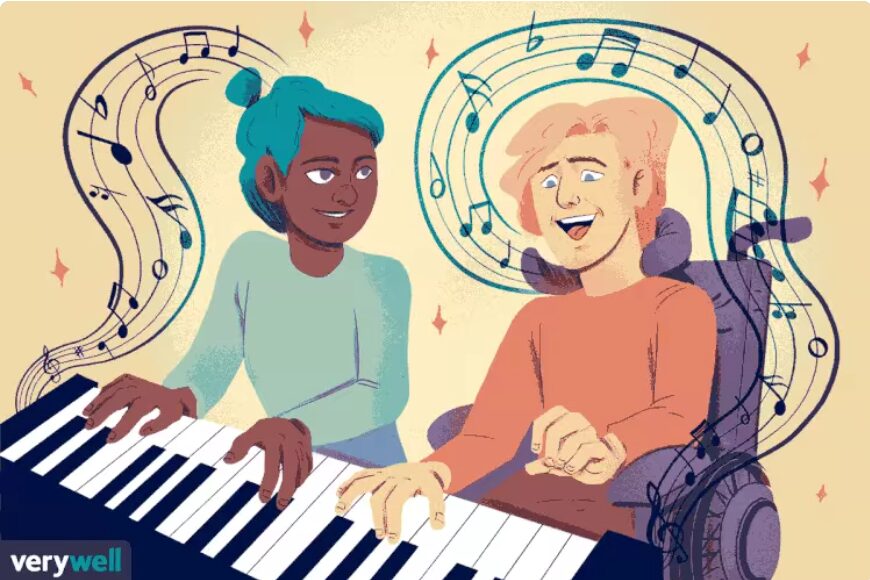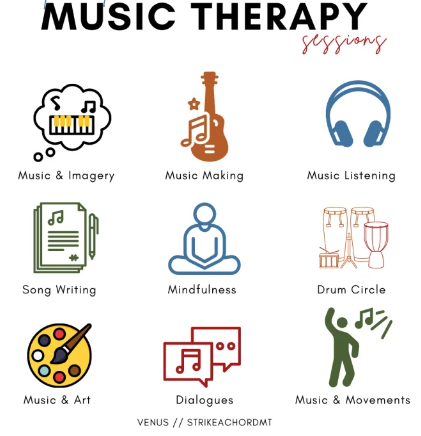The Harmonious Benefits of Music: A Deep Dive into its Transformative Power
In a world filled with chaos and uncertainty, music stands as a beacon of solace, offering a sanctuary for the weary soul and a conduit for emotional expression. Beyond its mere auditory pleasure, music holds a profound capacity to heal, uplift, and inspire. From the euphoric rhythms of hip-hop to the haunting melodies of classical compositions, the universal language of music transcends boundaries and speaks directly to the human experience. In this exploration/think piece, let us dive into the multifaceted benefits of music, uncovering its therapeutic potential, cognitive enhancements, and societal impact.

Healing Harmonies: The Therapeutic Power of Music
Music therapy, a practice rooted in ancient civilizations, has emerged as a recognized form of treatment for various physical, emotional, and psychological ailments. Whether it’s alleviating symptoms of anxiety and depression or aiding in physical rehabilitation, the therapeutic benefits of music are well-documented.
Studies have shown that listening to music stimulates the release of dopamine, a neurotransmitter associated with pleasure and reward, thereby enhancing mood and reducing stress levels. Moreover, engaging in active music-making, such as playing an instrument or singing, fosters a sense of empowerment and self-expression, particularly beneficial for individuals grappling with trauma or emotional distress.
In clinical settings, music therapy is utilized to address a myriad of conditions, including autism spectrum disorder, dementia, and chronic pain management. Through personalized interventions tailored to the individual’s needs, music therapists harness the inherent emotional resonance of music to facilitate communication, improve cognitive functioning, and promote emotional well-being.
The Melodic Mind: Music’s Influence on Cognitive Function

Beyond its therapeutic applications, music exerts a profound influence on cognitive function, shaping neural pathways and enhancing cognitive abilities across various domains. Research suggests that early exposure to music education correlates with improved language development, spatial reasoning skills, and academic achievement.
Moreover, the act of learning to play a musical instrument engenders neuroplasticity, the brain’s capacity to reorganize and form new connections in response to stimuli. This cognitive flexibility not only enhances musical proficiency but also translates into broader cognitive benefits, such as enhanced problem-solving abilities and resilience in the face of adversity.
Furthermore, music has been shown to mitigate age-related cognitive decline and delay the onset of neurodegenerative diseases such as Alzheimer’s and dementia. The rhythmic complexity and structural intricacies inherent in music challenge the brain, thereby promoting neurogenesis and preserving cognitive function well into old age.
Sonic Solidarity: Music as a Catalyst for Social Change
In addition to its individual benefits, music serves as a powerful catalyst for social change, fostering empathy, solidarity, and cultural understanding. Throughout history, music has been intrinsically linked to social movements, serving as a rallying cry for justice and equality.
From the protest songs of the civil rights era to the anthems of LGBTQ+ empowerment, music has galvanized movements and given voice to the marginalized. Its emotive power transcends linguistic barriers, uniting individuals from diverse backgrounds in a shared experience of collective resonance and defiance against injustice.
Music festivals and concerts serve as communal spaces where individuals can come together, transcending social divides and fostering a sense of belonging and camaraderie. In an increasingly fragmented world, these sonic gatherings offer a glimpse of unity and shared humanity, reminding us of the transformative power of music to bridge divides and inspire collective action.
In the symphony of life, music serves as both a soundtrack and a guiding force, shaping our experiences, emotions, and perceptions of the world. From its therapeutic applications to its cognitive benefits and societal impact, the transformative power of music is undeniable.
As we navigate the complexities of existence, let us not overlook the profound gifts that music bestows upon us—a source of solace in times of turmoil, a catalyst for growth and self-discovery, and a beacon of hope amidst the darkness. In embracing the harmonious vibrations of music, we embark on a journey of healing, enlightenment, and connection, an opening of the third eye—a journey that transcends the boundaries of space and time, uniting us in the eternal symphony of the human spirit.








